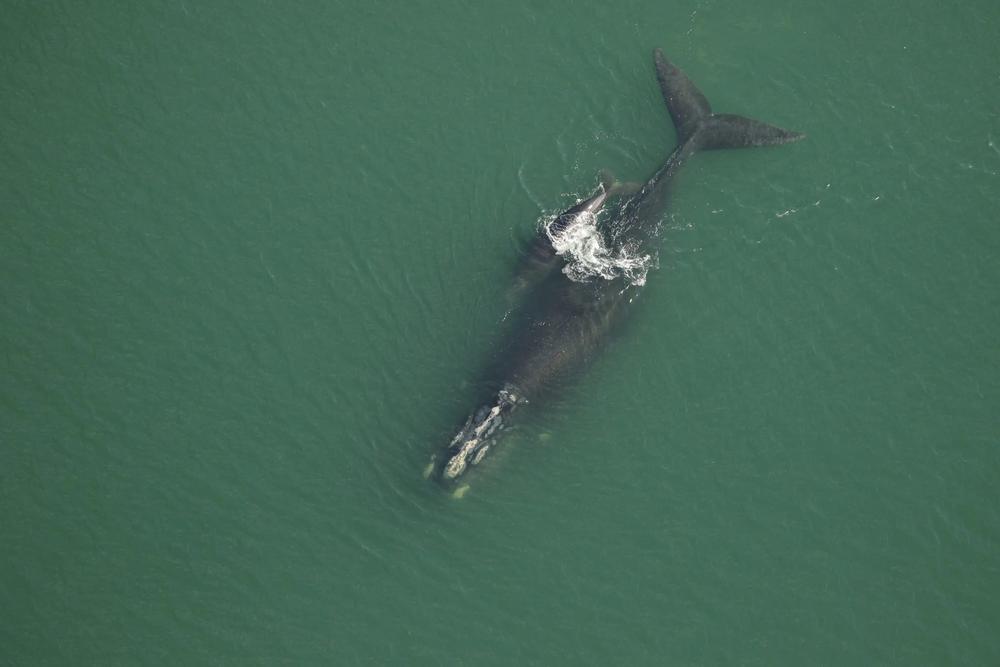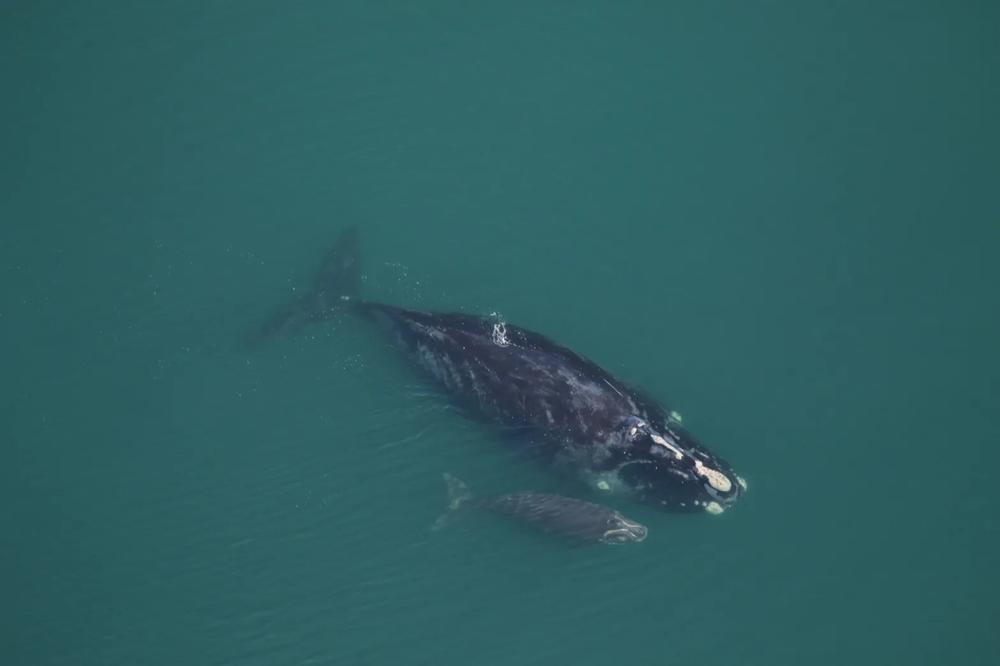
Caption
Archipeligo, a female right whale, and her new calf swim off Little St. Simons on Dec. 8, 2022. Back Embed
Credit: Florida Fish and Wildlife Conservation Commission, taken under NOAA permit 20556-01.

Archipeligo, a female right whale, and her new calf swim off Little St. Simons on Dec. 8, 2022. Back Embed
It’s been a good week for right whales. Researchers spotted the second right whale calf of the 2022-2023 season just a day after sighting the first one.
The second mother/calf pair featured a right whale nicknamed Archipeligo and her baby, who were photographed by scientists with the Florida Fish and Game Commission about 5 miles off Little St. Simons on Thursday. Archipeligo last gave birth four years ago. This is her third calf. On Wednesday researchers spotted the first North Atlantic right whale mom and calf pair of the 2022-2023 season off the coast of St. Catherines Sound.
That mom, Catalog #1208 “Medusa” is estimated to be 42 years old, and this is her seventh documented calf, according to the researchers from the Clearwater Marine Aquarium Research Institute who spotted her. Both mother/calf pairs were spotted as part of scheduled aerial surveys that help learn about and protect the highly endangered whales.

Medusa and her calf were sighted Dec. 7, 2022, about 13 miles off St. Catherines Sound.
Medusa and Archipeligo are two of an estimated 70 breeding females remaining in a total population of about 340 North Atlantic right whales (Eubalaena glacialis). Their only known calving grounds off the coasts of Northeast Florida, Georgia, and South Carolina have been designated Critical Habitat Areas to help protect the species.
Recent years have brought 20 deaths to these bus-sized animals from entanglement in fishing gear and from being hit by ships and boats. Another 14 right whales died from unknown causes since 2017, the National Oceanic and Atmospheric Administration reports.
The Georgia Department of Natural Resources reports it’s renewing efforts to inform recreational boaters about the risk that hitting a right whale poses to whales and boats. Three calves have died from collisions with boats less than 65 feet long since 2020. The north Atlantic right whale is Georgia’s state marine mammal.
This story comes to GPB through a reporting partnership with The Current.